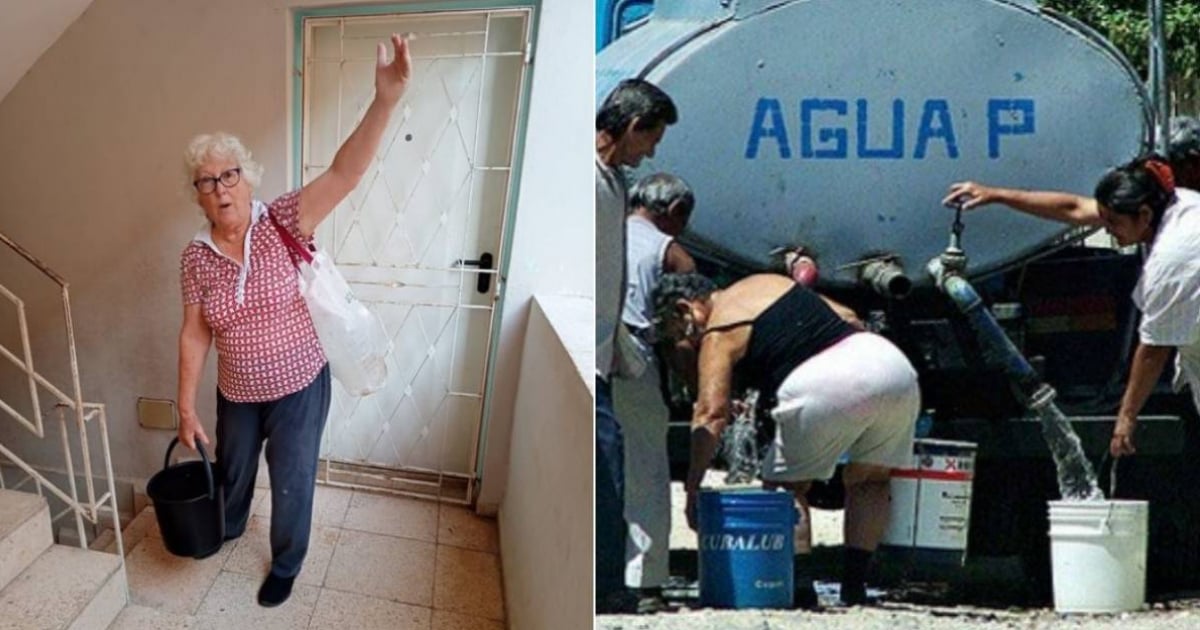Mirtha Fernández, a Facebook user residing in El Vedado, Plaza de la Revolución municipality, Havana, has taken to social media to expose the ongoing water supply crisis affecting her building and many families in the area.
For several months, these residents, primarily elderly individuals and retirees, have been struggling to access potable water. The situation has severely impacted their daily lives, especially for bedridden seniors who are not receiving the essential water services in their homes.
Despite promises from local authorities and the state-run company Aguas de La Habana, Fernández reports that the situation remains unchanged. She resides in building 510 on 15th Street, between D and E, and describes the arduous process of hauling buckets of water from D or 13th Street up the stairs to their apartments.
The crisis is especially challenging for Fernández, an elderly woman herself, who also cares for an 86-year-old bedridden senior. Authorities had assured residents they would receive water via tanker trucks (known locally as "pipas") every four days, but this solution has not been effectively implemented.
The building houses 35 apartments, limiting the amount of water they can store. This scarcity leaves many families without the necessary resources for basic tasks like cooking, laundry, and personal hygiene.
The regime claims that Plaza de la Revolución does not face severe water supply issues, prompting Fernández to question, "Which municipality are we in?"
Worsening Water Crisis Since July
Since July, water supply problems in El Vedado and other parts of Havana have significantly deteriorated. Authorities attribute the main cause to a malfunction in the electrical lines that power the Cuenca Sur, one of the primary water sources for the capital.
Although Aguas de La Habana asserts that its teams are working to resolve the crisis, the situation remains dire for the area's residents. Families, especially those in high-rise buildings, have had to rely on tanker trucks, which can cost between 8,000 and 10,000 Cuban pesos—a price unaffordable for most.
Fernández's complaint echoes the frustrations of many other Cubans who have voiced their desperation on social media over the water shortage and the lack of clear solutions from the authorities.
